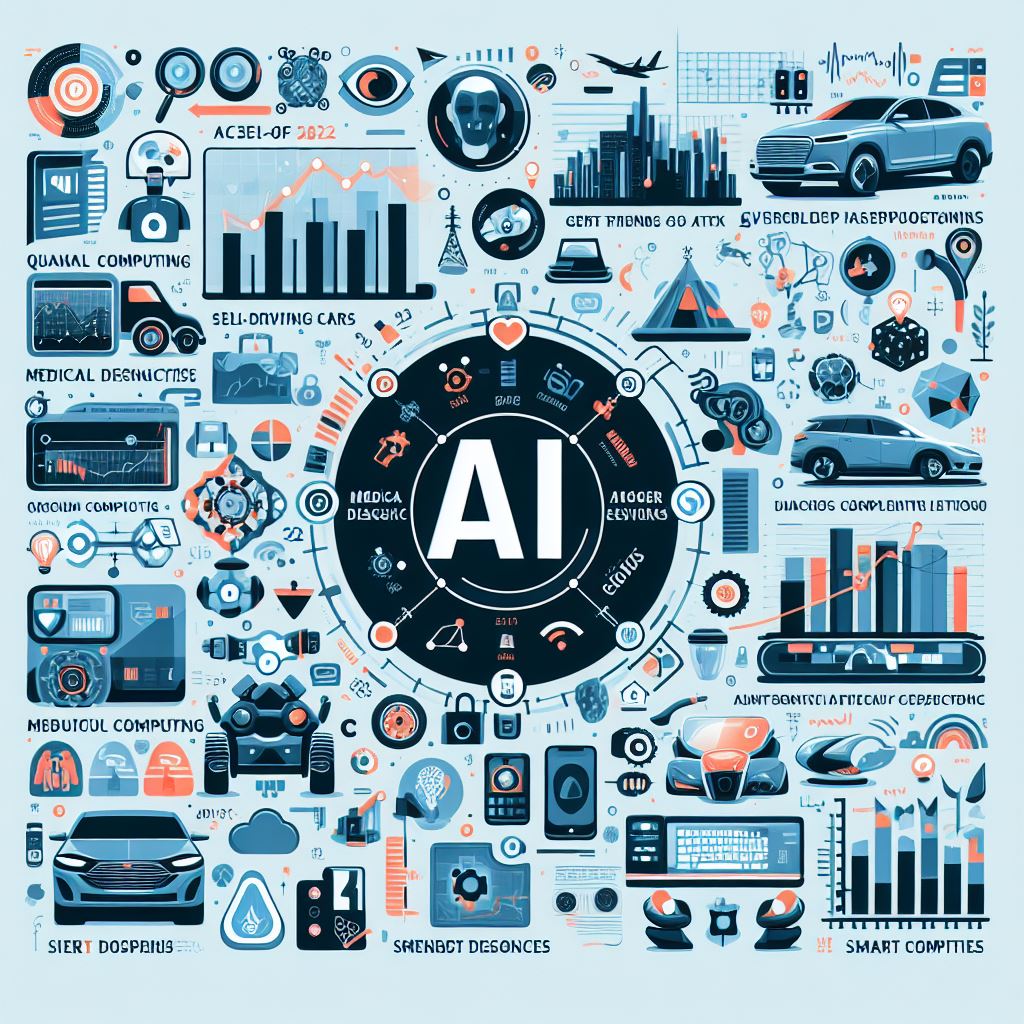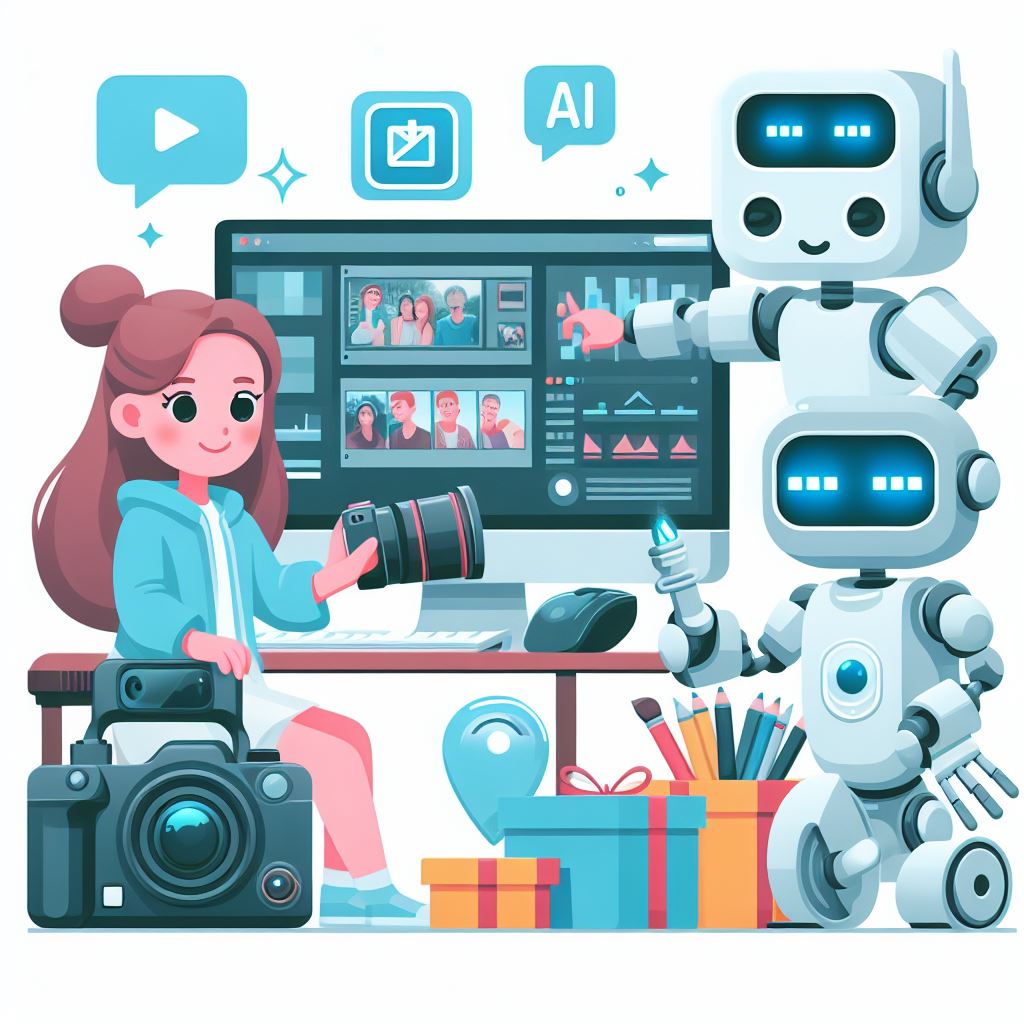
Artificial intelligence (AI) is one of the most transformative and disruptive technologies of our time. It has the potential to revolutionize various domains and industries, such as healthcare, education, entertainment, finance, manufacturing, and more. AI is also evolving rapidly, with new breakthroughs and applications emerging every year.
In this blog post, we will explore some of the top AI trends that are expected to shape the future of AI in 2024 and beyond. These trends include quantum AI, AI legislation, ethical AI, augmented working, and the next generation of generative AI. Each trend brings unique challenges and opportunities for the field of AI and its impact on society.
Quantum AI
Quantum AI is the fusion of quantum computing and artificial intelligence, which aims to leverage the power and speed of quantum computers to enhance the performance and capabilities of AI systems. Quantum computers use quantum bits, or qubits, which can exist in superposition of two states, unlike classical bits, which can only be either 0 or 1. This allows quantum computers to process and store massive amounts of data and perform complex calculations much faster than conventional computers.
Quantum AI is expected to accelerate the development and innovation of AI, by enabling new possibilities and solutions for various AI tasks and challenges, such as optimization, machine learning, natural language processing, computer vision, and more. Quantum AI could also help AI to achieve artificial general intelligence (AGI), which is the ability of AI to perform any intellectual task that a human can do.
However, quantum AI also faces some technical and ethical hurdles, such as the scalability, reliability, and security of quantum computers, the integration and compatibility of quantum and classical AI systems, and the social and economic implications of quantum AI’s potential to surpass human intelligence.
AI Legislation
AI legislation is the process of creating and enforcing laws and regulations that govern the development and use of AI, to ensure its safety, accountability, and fairness. AI legislation is becoming more urgent and important, as AI becomes more pervasive and influential in various aspects of society, such as education, healthcare, finance, security, and more.
AI legislation is expected to become more comprehensive and harmonized, as policymakers and stakeholders collaborate and coordinate to establish common standards and principles for AI, such as transparency, explainability, privacy, security, and human oversight. AI legislation could also help to foster trust and confidence in AI, by protecting the rights and interests of the users and the public, and by preventing or resolving potential conflicts and harms caused by AI.
However, AI legislation also faces some practical and ethical challenges, such as the complexity and diversity of AI technologies and applications, the uncertainty and unpredictability of AI outcomes and impacts, and the balance and trade-offs between innovation and regulation, and between human and machine autonomy.
Ethical AI
Ethical AI is the practice of designing and using AI in a way that respects and upholds the ethical values and principles of society, such as justice, fairness, equality, dignity, and diversity. Ethical AI is becoming more critical and relevant, as AI becomes more powerful and autonomous, and as it affects more aspects of human life and society, such as health, education, employment, security, and more.
Ethical AI is expected to become more mainstream and integrated, as AI developers and users adopt and implement ethical frameworks and guidelines for AI, such as the OECD Principles on AI, the EU Ethics Guidelines for Trustworthy AI, and the IEEE Ethically Aligned Design. Ethical AI could also help to promote social and human good, by addressing and solving some of the global and local challenges and issues, such as poverty, inequality, climate change, and more.
However, ethical AI also faces some conceptual and operational challenges, such as the ambiguity and diversity of ethical values and principles, the measurement and evaluation of ethical AI, and the enforcement and accountability of ethical AI.
Augmented Working
Augmented working is the phenomenon of enhancing and transforming human work and productivity, by using AI and other technologies, such as augmented reality, virtual reality, robotics, and more. Augmented working is becoming more prevalent and beneficial, as AI and other technologies become more advanced and accessible, and as they enable new modes and methods of working, such as remote working, collaborative working, and creative working.
Augmented working is expected to become more widespread and diversified, as AI and other technologies provide more tools and opportunities for workers, such as automation, personalization, optimization, and innovation. Augmented working could also help to improve the quality and satisfaction of work, by reducing the workload and stress, increasing the efficiency and effectiveness, and enhancing the skills and competencies of workers.
However, augmented working also faces some social and psychological challenges, such as the displacement and disruption of work, the adaptation and integration of work, and the balance and well-being of work.
The Next Generation of Generative AI
Generative AI is the branch of AI that focuses on creating and generating new and original content, such as text, images, audio, video, and more, by using machine learning models, such as generative adversarial networks (GANs), variational autoencoders (VAEs), and transformers. Generative AI is becoming more impressive and versatile, as it can produce realistic and diverse content, that can mimic or surpass human creativity and intelligence.
Generative AI is expected to become more powerful and accessible, as AI researchers and developers improve and innovate the machine learning models and algorithms, and as they make them more user-friendly and interactive. Generative AI could also help to expand and enrich the human culture and expression, by providing new forms and mediums of art, entertainment, education, and communication.
However, generative AI also faces some ethical and legal challenges, such as the authenticity and quality of the generated content, the ownership and rights of the generated content, and the potential misuse and abuse of the generated content.
Share your thoughts and opinions on these AI trends
We would love to hear from you about these AI trends and how they affect you and the world. You can share your thoughts and opinions on these AI trends by leaving a comment below, or by contacting us via email or social media. You can also join the conversation with other AI enthusiasts and experts by using the hashtag #AITrends2024 on Twitter, Facebook, Instagram, and LinkedIn.
We hope that this blog post has inspired you to learn more about these AI trends and how to prepare for them. We also hope that you will join us in exploring and shaping the future of AI. Thank you for reading this blog post. 😊


The point of view of your article has taught me a lot, and I already know how to improve the paper on gate.oi, thank you.
Can you be more specific about the content of your article? After reading it, I still have some doubts. Hope you can help me.
Can you be more specific about the content of your article? After reading it, I still have some doubts. Hope you can help me.